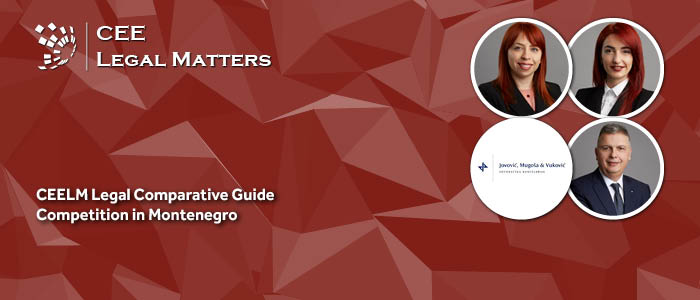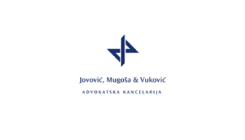Contributed by Jovovic, Mugosa & Vukovic.
What are the main competition-related pieces of legislation in Montenegro?
Competition protection in the Montenegrin market and the control and monitoring of compliance with state aid and other issues relevant to competition protection and state aid control are primarily regulated by the Law on Competition Protection (Official Gazette of Montenegro no. 44/2012, 13/2018, and 145/2021) and the Law on State Aid Control (Official Gazette of Montenegro no. 74/2009 and 57/2011).
In addition to these laws, as the primary mechanism for competition protection, competent authorities, in carrying out their duties within their jurisdiction, also utilize secondary legislation, namely rulebooks and decrees, issued based on the laws.
Below, is the list:
Decrees
- Decree on the group exemption for vertical agreements from prohibition (Official Gazette of Montenegro 13/14)
- Decree on the group exemption from prohibition for horizontal agreements on research and development (Official Gazette of Montenegro 13/14)
- Decree on the group exemption from prohibition for horizontal agreements on specialization (Official Gazette of Montenegro 13/14)
- Decree on the group exemption from prohibition for agreements on the distribution of spare parts and servicing of motor vehicles (Official Gazette of Montenegro 13/14)
- Decree on the group exemption from prohibition for agreements on technology transfer (Official Gazette of Montenegro 59/14)
- Decree on the group exemption from prohibition for agreements in road, rail, and inland waterway transport, and agreements on consortia in scheduled maritime transport (Official Gazette of Montenegro 59/14)
Rulebooks
- Rulebook amending the rulebook on the content and manner of submitting requests for individual exemption of agreements from prohibition (Official Gazette of Montenegro 48/20)
- Rulebook on the method and criteria for determining the relevant market (Official Gazette of Montenegro 18/13)
- Rulebook on the content and manner of submitting requests for individual exemption from agreements (Official Gazette of Montenegro 18/13)
Have there been any notable recent (last 24 months) updates of Montenegro competition legislation?
The current Law on Competition Protection in use has been effective since October 8, 2012, when the previous Law on Competition Protection ceased to be valid (Official Gazette of the Republic of Montenegro no. 69/2005 and 37/2007). It has undergone several amendments, notably in 2018 and 2021, through the adoption of:
Law on Amendments to the Law on Competition Protection (Official Gazette of Montenegro no. 13/2018 dated February 28, 2018, entering into force on March 8, 2018)
Law on Amendments to the Law on Competition Protection (Official Gazette of Montenegro no. 145/2021 dated December 31, 2021, entering into force on January 8, 2022).
The most recent amendments to the law were, therefore, in 2021 (specifically, coming into force on January 8, 2022). These latest amendments concern the competencies of the Competition Protection Agency (AZK) and its bodies.
What are the main concerns of the national competition authority in terms of agreements between undertakings? How is the sanctioning record of the authority?
In accordance with the Law on Competition Protection, the Competition Protection Agency is an institution with public authority, responsible for administrative and expert tasks in the field of competition protection. These tasks include assessing agreements among market participants, determining abuse of dominant position, evaluating the permissibility of market participant concentrations, as well as individual exemptions of agreements from prohibition on the market, and tasks related to state aid, specifically monitoring compliance with state aid, allocation, and utilization of state aid in accordance with the law.
Under the legal regulations, the agency has the authority to impose fines on market participants ranging from 1% to 10% of the total annual revenue in the financial year preceding the year in which the infringement occurred. Additionally, fines ranging from EUR 1,000 to EUR 4,000 can be imposed on responsible individuals within market participants or within state organs, state administration bodies, and local government bodies, if such bodies are involved as market participants. Finally, a fine (ranging from EUR 4,000 to EUR 40,000) is prescribed for market participants who fail to submit a request for approval for implementing a concentration within the statutory deadline.
Regarding the agency’s penalty records, according to the 2022 Annual Report of the agency (the latest available report), there were 12 issued offense orders, with all 12 resulting in legal proceedings, and the total amount of fines imposed by the agency amounted to EUR 3,246,812.36.
Moreover, in 2022, the agency filed 21 requests to initiate misdemeanor proceedings.
Which competition law requirements should companies consider when entering into agreements concerning their activities in Montenegro?
Legal and natural persons conducting business activities and participating in the production and sale of goods or services within the territory of Montenegro must ensure that agreements they conclude do not have as their objective or effect the prevention, restriction, or distortion of competition in the relevant market. This applies to both written and oral agreements, contracts, individual contract terms, explicit or tacit agreements, concerted practices, and decisions of associations of market participants (agreements), which:
1) Directly or indirectly determine purchase or sale prices or other trading conditions;
2) Restrict or control production, markets, technical development, or investments;
3) Divide markets or sources of supply;
4) Apply different conditions to equivalent transactions with other participants in the same market, thereby placing them in a competitively disadvantageous position;
5) Make the conclusion of agreements subject to the acceptance of additional obligations by the other contracting party, which, by their nature or commercial purpose, are not related to the subject matter of the agreement;
6) Determine the obligation to apply a specific price in subsequent sales or otherwise ensure the application of a recommended resale price.
Does a leniency policy apply in Montenegro?
In the previous period, according to available data, the leniency policy was not applied in Montenegro. The position of the competent authority is that efforts must be made in the upcoming period to improve the use of this policy, all aimed at detecting cartels. It is important to note that the Competition Agency’s report for the year 2023 has not been presented, so we do not have accurate information about the actions of the competent authorities in the previous year in this regard.
How is unilateral conduct treated under Montenegro competition rules?
In addition to agreements that prevent, restrict, or distort competition, as discussed earlier, acts or actions that constitute a violation of competition in the market, within the meaning of this law, include abuse of dominant position and concentrations that prevent, restrict, or distort competition or the free development of an open market economy, particularly the creation or strengthening of a dominant position in the market.
Abuse of a dominant position in the market is considered to include:
1) Directly or indirectly imposing unjustified purchase or selling prices or other unjustified business conditions;
2) Restricting production, markets, or technical development to the detriment of consumers;
3) Applying different conditions to transactions of the same type with other market participants, thereby placing them at a competitively disadvantageous position;
4) Making the conclusion of agreements conditional upon accepting additional obligations which, by their nature or commercial purpose, are not related to the subject matter of such agreements.
Concentrations that create a new or strengthen an existing dominant position of one or more participants, individually or jointly, which may significantly affect the prevention, restriction, or distortion of effective competition in the relevant market, are prohibited, except in cases where the participants in the concentration demonstrate that the concentration will benefit consumers and that the effects of the concentration will outweigh the negative effects of creating or strengthening a dominant position.
The Competition Agency initiates proceedings to investigate competition infringements ex officio when, based on submitted initiatives, information, documents, and other available data, it reasonably suspects the existence of a competition infringement.
What are the consequences of a competition law infringement?
When the Competition Agency determines that an agreement prevents, restricts, or distorts competition in the relevant market, it will issue a decision prohibiting the implementation of that agreement. Through the decision, the agency will order the parties involved in the proceedings to fulfill certain conditions or take certain measures, in accordance with the law, proportional to the committed infringement, to eliminate harmful consequences and establish effective competition in the market, as well as deadlines for their execution.
Furthermore, if the Competition Agency determines abuse of a dominant position, it will, through a decision, establish the dominant position of the participant in the market and the action of the participant in the relevant market that constitutes the abuse of the dominant position and prevents, restricts, or distorts market competition, as well as the duration of the abuse. The agency will prohibit the actions and behaviors by the parties involved in the proceedings that constitute the abuse of the dominant position and impose measures, in accordance with the law, and deadlines for their execution.
If there is a risk of irreparable harm to the individuals directly affected by the actions or acts under investigation, the Competition Agency may order a temporary measure to cease the performance of those actions or the application of acts, or require the undertaking of actions or refraining from taking actions to prevent or mitigate their harmful consequences.
Additionally, the law also provides for judicial protection and stipulates that compensation for damages caused by acts and actions constituting a competition infringement determined by the decision of the agency shall be sought in civil proceedings before the competent court.
As previously stated, the law also prescribes fines for violations in cases where an agreement is negotiated, concluded, or executed, thereby preventing, restricting, or distorting competition, in cases of abuse of dominant position, implementation of prohibited concentrations, failure to suspend the implementation of a concentration until the agency issues a decision approving the intended concentration, and non-compliance with measures, conditions, and deadlines determined by the decision. These fines apply to both market participants and responsible individuals within market participants.
Are there any recent local abuse cases of relevance?
As indicated earlier, the Competition Agency of Montenegro has not presented its work results for the year 2023 yet, but this is expected in the near future. For now, we can mention that in the previous year, the Agency determined that the Association of Travel Agencies of Montenegro had adopted a Price List of travel agency services, which had the objective or effect of preventing, restricting, or distorting competition in the relevant market, pursuant to Article 8, paragraph 1, point 1 of the Law on Competition Protection. Consequently, it was prohibited and declared null and void.
Is there any competition law requirement in case of mergers & acquisitions occurring or impacting the Montenegro market?
Yes, there is. Specifically, Article 50 of the Competition Protection Law prescribes the following:
“Concentration as defined in Article 16 of this Law shall be carried out solely upon approval issued by the Agency at the request of the market participants.
A request under paragraph 1 of this Article may be submitted under the condition that:
1) The combined total annual revenue of at least two participants in the concentration realized in the market of Montenegro exceeds five million euros in the previous financial year;
2) The combined total annual revenue of the participants in the concentration realized in the global market in the previous financial year exceeds twenty million euros if at least one of the participants in the concentration during that period generated one million euros of revenue in the territory of Montenegro.
Upon becoming aware of the implementation of a concentration, the Agency may order the participants in the concentration to submit a request for approval for the implementation of the concentration if their combined market share in the relevant market of Montenegro exceeds 60%.
The burden of proving the combined market share of the participants in the concentration lies with the Agency.
Revenue generated within the group of participants in the concentration shall not be taken into account in calculating the combined total annual revenue under paragraph 2 of this article.”
Therefore, the first scenario requiring a request for concentration approval is when at least two participants in the concentration (buyer, seller, company) must have a combined total annual revenue realized in the market of Montenegro exceeding EUR 5 million in the previous financial year.
The second scenario requiring a request for concentration approval is when the combined total annual revenue of the participants in the concentration realized in the global market in the previous financial year exceeds EUR 20 million, provided that at least one of the participants in the concentration generated EUR 1 million of revenue in the territory of Montenegro during that period.
Therefore, if none of the participants generated EUR 1 million of revenue in the territory of Montenegro during the previous financial year, then it is not relevant how much revenue was generated in the global market.
Regardless of the aforementioned, the agency may, subsequently, upon becoming aware of the implementation of a concentration, order the participants in the concentration to submit a request for approval for the implementation of the concentration if their combined market share in the relevant market of Montenegro exceeds 60%.
What is the normal merger review period?
The process of evaluating a concentration begins on the day of receiving a complete request for the issuance of approval for the implementation of the concentration.
In the process of handling the request for approval for the implementation of the concentration, the agency will:
1) Reject the request for concentration approval if the conditions discussed in the previous question are not met. In this case, the agency makes a decision within 25 working days from the date of submitting the request.
2) Suspend the procedure if the applicant withdraws the request. In this case, the agency makes a decision within 25 working days from the date of submitting the request.
3) Approve the concentration when, based on the assessment of its effects according to legal criteria, it is determined that the concentration does not significantly prevent, restrict, or distort effective competition, primarily by creating or strengthening a dominant position in the market. In this case, the agency makes a decision within 105 working days from the date of submitting a complete request.
4) Approve the concentration while imposing additional measures, conditions, and obligations that the participants in the concentration must fulfill before or after the implementation of the concentration. In this case, the Agency makes a decision within 125 working days from the date of submitting a complete request.
5) Reject the request when, based on the assessment of its effects according to legal criteria, it is determined that the concentration would significantly restrict effective market competition in the relevant market, especially by creating a new or strengthening an existing dominant position.
In this case, the agency makes a decision within 130 working days from the date of submitting a complete request.
Participants in the concentration are obliged to suspend the implementation of the concentration until the agency issues a decision approving the intended concentration or until the expiry of the statutory deadlines for issuing a decision. Exceptionally, participants in the concentration may continue the implementation of a public offer in accordance with the law, provided that the acquirer of control does not exercise voting rights over the subscribed shares or stakes or does so solely with the aim of protecting the value of the acquired company until the agency issues a decision. Upon a reasoned request from the acquirer to protect their rights or the property of the acquired company, the agency may, at the request for approval for the implementation of the concentration, resolve the matter on an expedited basis.
The agency will revoke the decision approving the concentration if the decision is based on inaccurate or untrue data and facts.
If the agency assesses that the implementation of the concentration would prevent, limit, or distort competition, it will inform the applicant for the approval of the concentration of the essential facts, circumstances, and conclusions on which it will base its decision, for clarification. The applicant may propose measures in their response aimed at ensuring that the implementation of the concentration does not prevent, limit, or distort competition. If the agency determines that the proposed measures do not prevent, limit, or distort competition, it will issue a decision approving the concentration and order of the implementation of measures and deadlines for their implementation, as well as the method of monitoring the implementation of measures. The agency will revoke the decision conditionally approving the concentration if the participants in the concentration do not implement the proposed measures.
If the agency fails to issue a decision within the aforementioned deadlines, the procedure is suspended.
Are there any fees applicable where transactions are subject to local competition review?
The tariff regarding the amount of fees payable in proceedings before the Competition Protection Agency regulates the issue of fees in concentration proceedings. Specifically, the fee amounts vary depending on the case, as follows:
- The fee for issuing a decision rejecting the request for approval of the concentration amounts to EUR 600;
- The fee for issuing a conclusion on the suspension of the procedure for issuing approval for the implementation of the concentration, if the applicant withdraws the request, amounts to EUR 600;
- The fee for issuing a decision rejecting the request for approval for the implementation of the concentration amounts to EUR 1,000;
- The fee for issuing a decision approving the concentration in an expedited procedure amounts to 0.03% of the total annual revenue of all participants in the concentration generated in the previous financial year, provided that the fee amount cannot exceed EUR 15,000;
- The fee for issuing a decision approving the concentration in an examination procedure and a decision on conditional approval of the concentration amounts to 0.07% of the total annual revenue of all participants in the concentration generated in the previous financial year, provided that the fee amount cannot exceed EUR 20,000.
The aforementioned fees from the tariff are paid into the agency’s account, and proof of payment of the fee is submitted at the request of the market participants.
Is there any possibility for companies to obtain State Aid in Montenegro?
Yes, there is, with the state aid control established by the Law on State Aid and Support Control in 2007 and accompanying subordinate legislation.
State aid can be granted in various forms, including:
1) Subsidies or subsidized interest rates on loans;
2) Fiscal incentives (tax, contributions, and other public revenues);
3) State or municipality guarantees;
4) Transfer of profits and/or dividends from the state or municipality to the recipient of state aid;
5) Debt write-offs owed to the state, municipality, or legal entity managing and disposing of public revenue and state property;
6) Sale of immovable property by the state or municipality at a price lower than market value or purchase at a price higher than market value;
7) Use of state property free of charge or at a lower-than-market-rate compensation; and
8) Other assistance in accordance with the law.
What were the major changes brought by the COVID-19 pandemic? Have any of them stuck and how likely is it for these changes to continue to do so in the foreseeable future?
Having in mind that the COVID-19 pandemic was not considered a reason for declaring a state of emergency, there were no significant changes in this area. It should be noted that in 2020, the Government introduced three sets of measures to aid citizens and the economy.
The first set of measures included:
- Mitigating the negative impact of the pandemic on the financial system by deferring loan repayments for 90 days.
- Deferring the payment of taxes and contributions on salaries, as well as other obligations under the Law on Reprogramming, for up to 90 days.
- Establishing a new credit line by the Investment and Development Fund (IRF) for economic assistance.
- Advancing payments to contractors for investment works.
The implementation of the second set of measures was essentially a continuation of the first set, as follows:
- Subsidies for closed activities
- Subsidies for the tourism sector
- Subsidies for vulnerable sectors, including entrepreneurs, micro, small, and medium-sized enterprises (excluding state institutions, local self-government, and enterprises majority-owned by the state or local self-government)
- Subsidies for new employment
The implementation of the third set of measures also continued the initiatives from the first set and included:
- New credit lines are provided by the Investment and Development Fund
- Fiscal incentives, such as lower VAT rates (7%) for certain economic sectors like tourism
- Direct support for SMEs
- Defined structure and timeline for investment by sector





